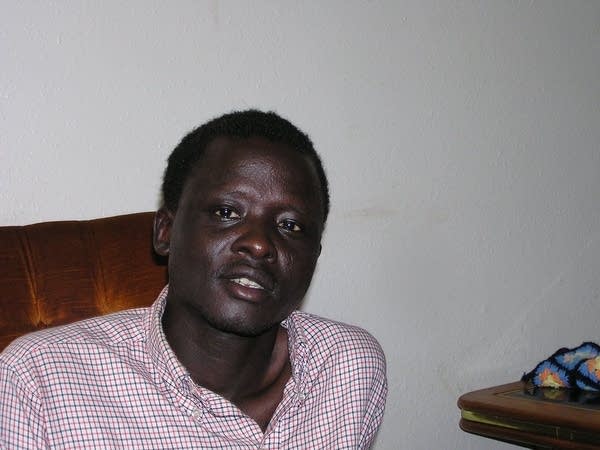Fargo/Moorhead a destination point for new immigrants
Go Deeper.
Create an account or log in to save stories.
Like this?
Thanks for liking this story! We have added it to a list of your favorite stories.

Harun Mudung remembers the exact day he arrived in the United States, May 12,1999. Mudung left his homeland in the Sudan because of the Civil War.
"When there is fighting going on you don't have a place to live," he says. "There is no jobs, that's the problem thats the thing that brought me to the U.S."
What Mudung simply wants is to provide for his family. So last fall Mudung relocated to Fargo from Atlanta, Georgia. His wife, five children two brothers and a sister came along too. He says the cost of living is much cheaper here and finding steady employment was easy. Mudung now works at a local window manufacturing plant.

Kathy Hogan is the director of Cass County social services. She helps refugees qualify for state and federal aid like food stamps and housing.
Turn Up Your Support
MPR News helps you turn down the noise and build shared understanding. Turn up your support for this public resource and keep trusted journalism accessible to all.
Hogan says Mudung is a good example of how refugee resettlement in Fargo is changing.
Hogan says since the 9/11 terrorist attacks, the federal government has made it tougher for refugees to get into the United States.
Before the attacks it was common for as many as 600 refugees to move into the Fargo area each year. Hogan says the numbers are down.
"In the first six months of 2006 we had 33 new households of refugees,"she says. "Sixteen of those, or half of them, are secondary, meaning that they weren't resettled in Fargo first, meaning that, they started some place else and moved here."
One reason the Fargo area is attractive for refugees is the job market. Marty Aas is the area manager for Job Service North Dakota. Aas says there are 3,000 job openings in the Fargo area. The unemployment rate here is 2.6 percent, the lowest in the state.

Aas says the jobs range from high tech work at Microsoft to entry level jobs in the service industry. He says the new Americans face some problems, but are doing well.
"You'll have a few that struggle because of the language or the educational skills that they may not have," he says. "Some individuals have no formal education, (they were) very repressed in their native country. But the vast majority are getting jobs and integrating into the community, you see the specialty stores opening up, the different restaurants, ethnic foods."
Refugees who relocate to the Fargo area have established their own neighborhoods and social networks. Paul Kubari, is from the Sudan. He and his wife and two young children lived in Maine and Michigan before resettling in Fargo. Kubari says the area appeals to his family, because they feel safe here.
"My kids are safer," he says. "More safer than being in a big city with crimes and all this and that, they can go outside and play."
Education is another factor when deciding to relocate. Kubari says the size of the local schools appeals to him.
Kubari is working at a variety of day jobs. He wants to keep his schedule flexible, so he can take classes at the local university. Pharmacy is a popular choice for a career among the Sudanese refugees in Fargo. Both Paul Kubari and Harun Mudung plan on taking classes at the local university, both want to become pharmacists.
Their career choice is simple. Both men hope to return to their homeland some day and help their people.



